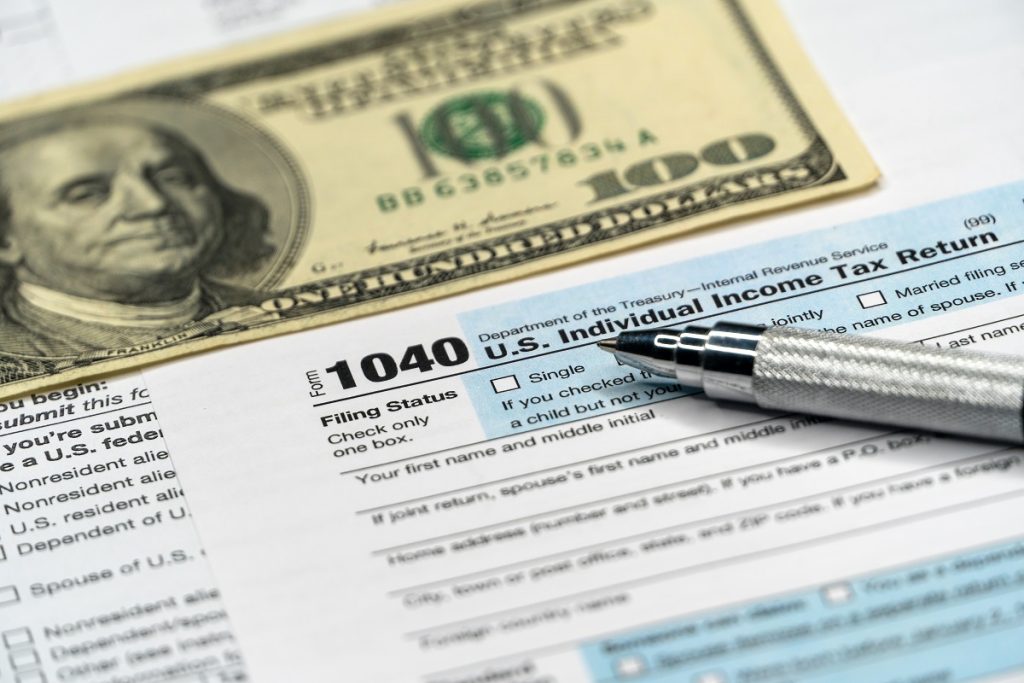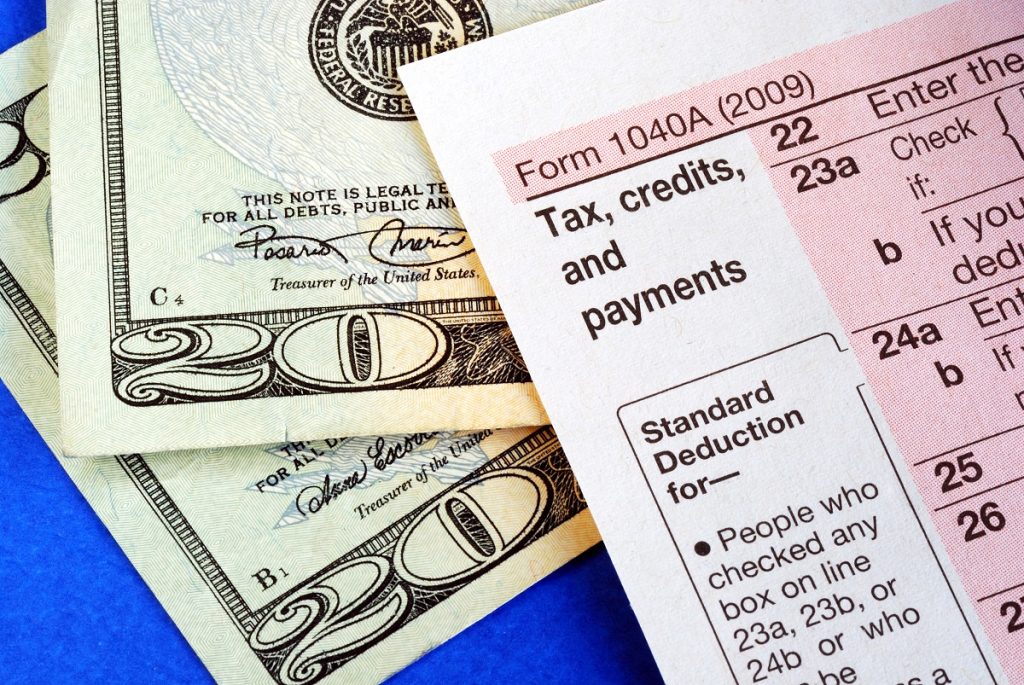If you provide a home for your parent, you may be able to get a tax deduction or credit if you provide for their care and meet IRS requirements. You may be able to deduct their medical expenses that you pay or expenses for home help care aides. As there are many results, consulting a tax advisor can be beneficial.
While most people do not bring an elderly parent into their home to reap tax benefits, it is smart to know exactly what breaks you could possibly receive on your tax return. Many people find it beneficial to talk to a tax professional before claiming aging parents on tax returns, as there are clear and specific rules that adult children can follow when filing taxes.
What Are The Tax Implications Of Parents Living With You?
If you have moved your elderly parents into your home, there is a chance that you can get a tax credit. There are many things to consider, such as their taxable income, expenses you pay for such as adult day care or medical bills, home modifications, and the like.

If you find that you are paying for a lot of your parent’s medical expenses out of pocket, keep all the documentation in case your tax professional decides you should have itemized deductions.
How Much Should I Charge My Parents For Living With Me?
Most aging parents want to age in place, which is the term used for living out life in the home they are accustomed to being in. Since that is not always possible, aging parents sometimes move in with adult children. Is it reasonable to charge parents rent and living expenses?
Depending on your financial condition and that of your parents, having them pay their fair share, if they can, is reasonable. However, the time to discuss contributions is before your loved one moves in with you. Many people have a written agreement to make it official. This can help keep it from appearing to other siblings like one sibling is taking advantage of the parents. Any amount of money charged should be reasonable for the area. It can align with the cost of care in a facility, or it can be less.
Some individuals divide the household expenses evenly by the number of people living in the house, while others divide it out, then lower the amount charged to the elderly family member. As you can see, there is no clear, correct answer.
Is Rent My Parent Pays Me Considered Income?
According to an article in Consumer Reports, if your parents are paying market-rate rent, you must report it to the Internal Revenue Service (IRS )when tax filing. The amount is considered income and subject to filing on a schedule E form, so there is more to consider here.
Although you need to count it as income, you can also consider the increased cost of having them in your home and deduct that from the amount you receive. Since this is complicated, you may wish to discuss these implications with a certified tax preparer.

What if My Parent Pays Me for Providing Care?
Adult children frequently ask if their elderly parents can pay them for providing care. Home care is often necessary for older adults who cannot independently do activities of daily living (ADLs). The family may need caregivers to come into the home to assist with these things.
What if you want to provide this care for your loved one yourself? Can you be paid by them or a program of some type? Is that legal? Do you need to consider that income? Adult children can receive payment for providing care to a parent if it is required, and, yes, they must count this money must be counted as income.
Can You Get A Tax Deduction For My Elderly Parent?
There are tax deductions you may qualify for if you care for an aging parent, whether they are your biological parent or an in-law.
What is The Child and Dependent Care Credit, And How Can it Help You?
The child and dependent care credit can include your elderly parent if certain things are true. First, your parent does not have to live with you for you to claim them as a dependent. Your parent’s taxable income must be less than $4,300 for the tax year for you to claim them.
Your parents’ income does not include tax-exempt pensions or social security income. You do need to know about any taxable income that must be taken into consideration, such as dividends, gains from the sale of stock, bank account interest, etc.

Other things need to be true. Your parent needs to pass the support test, which means you must be able to document that you provide at least 51% of their support throughout the year. In addition, you must satisfy both the residency and relationship tests. For more detailed information, check out TurboTax!
What Is The Difference Between A Dependent And A Qualifying Child For Tax Purposes?
To be considered a qualifying child for tax purposes, the child needs to be either a qualifying child or a qualifying relative. The IRS tells us, “To meet the qualifying child test, your child must be younger than you and either younger than 19 years old or be a “student” younger than 24 years old as of the end of the calendar year.” An exception to that is having a child who is permanently and totally disabled, as well as still reliant on you for care and support.
A dependent can be an adult dependent upon you for support and care, such as an elderly parent. As mentioned above, it can also be your adult child who is disabled, and you are still supporting them.
Is There A Tax Deduction For Caring For An Elderly Parent?
If your elderly parent is reliant upon you for care, taxpayers should look to see if it is in their best interest to bypass the standard deduction and investigate tax deductions for this. There are other perks you can consider using if your parents might qualify to be your dependent. For example, if you have a flexible spending account, you can use money needed to pay for medications, health care, and other expenses out of this account.
Filers should also look into the state tax laws wherever they live to see if there are any deductions they might qualify for.
If you have dependent care flexible spending accounts with your employer, where a percentage of your money is not taxed and put in a dependent care FSA account, you can use this for eldercare as well as child care.

And if you pay out of pocket for your parent’s medical or dental treatment, you may enable to claim the deduction on your taxes.
Is There A Deduction For Being A Caretaker?
If you are a caretaker for an aging parent, one of the tax breaks is that you can file with your parent as a dependent if they qualify. You should carefully document all expenses you incur related to your parent’s care to ensure you do not end up in trouble with the IRS when filing your income tax return.
Sometimes caregivers are paid for their services, even if they are family members. In certain situations, there are exemptions on paying tax on these wages, even if your loved one has to file that the wages have been paid out. The IRS advises household caregivers in its Household Employer’s Tax Guide.
Can I Claim My Parents As Dependents If They Receive Social Security?
Yes, you can still claim your parents as dependents, even if they receive social security. In fact, your parent’s social security does not even count as income when determining if they qualify as dependents according to IRS and federal tax laws.
To claim your parents, you have to be able to substantiate your claim to have provided over half of your parent’s support, and your support must also exceed your parents’ income.
How do you put a monetary value on the support you are providing? There is a lot to consider:
- Rent: What is the fair market value of the space your parent occupies?
- Utilities: If mom or dad lives in a room with a bathroom and sitting room space, and that is approximately 20% of the footprint of the home, you can average about 20% of the energy bill.
- Food: Estimate the cost of food you provide. Of course, you can also include other items such as toiletries, etc.
- Medical Bills: If you contribute to medical expenses, include those.
Why Should You Work With A Tax Advisor To Claim Maximum Benefits?
Too often, people make the mistake of not asking the right questions to the right people. Getting legal advice from a certified tax advisor, whether they are a CPA or other type of tax specialist, can help you to navigate these muddy waters. Knowing which IRS forms to use and what specific deductions you qualify for is complicated, but these people are trained to know what to do. Don’t risk making costly errors because of ignorance around tax laws.

The best scenario is to chat with your tax professional before you take on the care of a parent.

